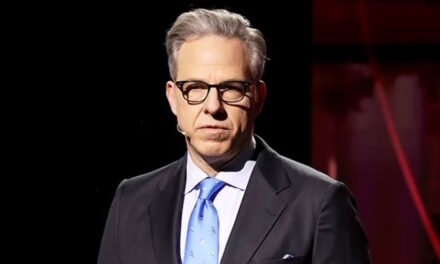The 2016 presidential election in the United States will long be remembered for its dramatic twists and unexpected outcomes. Donald Trump’s victory not only left the nation divided but also triggered a series of emotional reactions from many quarters, including the media. The aftermath saw various on-air personalities expressing their discontent in passionate and sometimes controversial ways. Here’s a look at some of the most memorable media meltdowns that followed Trump’s win, highlighting the wide array of emotions, from disbelief and sadness to outrage and accusations.
1. Van Jones’ Emotional Monologue
On CNN, political commentator Van Jones delivered an impassioned speech the night of the election, questioning what the outcome said about America. He termed Trump’s victory a “white-lash” against a changing country and a black president. Jones’ heartfelt commentary resonated with many viewers who felt similarly disenchanted or worried about the country’s direction.
2. Rachel Maddow’s Broadcast Reaction
MSNBC’s Rachel Maddow, known for her incisive political analysis, struggled with the outcome on election night. Her initially composed demeanor gradually gave way to a visible sense of frustration and disbelief as the night’s results became clear. Maddow’s on-air analysis reflected the shock felt by many progressive Americans who expected a different outcome.
3. Stephen Colbert’s Election Night Special
Stephen Colbert hosted a live election night special with high expectations of a different result. As the results began to favor Trump, Colbert’s show took on a darker, more somber tone. He lamented the divisiveness of the election and questioned how America could bridge the gap between its polarized citizens.
4. Samantha Bee’s Furious Response
Comedy host Samantha Bee dedicated a significant portion of her show, “Full Frontal,” to express her anger and confusion following the election. She didn’t hold back, addressing her audience with a fiery monologue that laid bare her frustrations with both the outcome and the political dynamics that led to Trump’s election.
5. Chris Matthews’ Critique of Clinton Campaign
Though not directly a meltdown, MSNBC’s Chris Matthews expressed sharp criticism towards Hillary Clinton’s campaign. In his post-election analysis, he accused the campaign of being out of touch with ordinary Americans, which he believed contributed significantly to her loss.
6. The Young Turks’ Live Coverage
Progressive online news show “The Young Turks” provided live coverage of the election night. The hosts, known for their liberal stance, offered candid reactions filled with both humor and disappointment. As Trump inched closer to victory, the panel became increasingly animated, unrestrained in their expressions of dismay.
7. Morning Joe’s Heated Discussions
In the days following the election, MSNBC’s “Morning Joe” often featured heated discussions among its hosts and guests. The team, led by Joe Scarborough and Mika Brzezinski, engaged in spirited debates over the election’s implications and potential policy shifts under Trump’s administration.
8. Luke Russert’s Reaction on NBC
NBC’s political correspondent, Luke Russert, shared a candid reaction on social media following the election. He posted an emotional tweet reflecting his genuine surprise and concern over the results, capturing the sentiment that many young Americans felt at the time.
9. Saturday Night Live’s Somber Cold Open
The episode of “Saturday Night Live” following the election took an uncharacteristically somber tone with its cold open. Kate McKinnon, in her role as Hillary Clinton, played a piano rendition of Leonard Cohen’s “Hallelujah,” which served as both a tribute and a moment of introspection for the show and its viewers.
10. Fareed Zakaria’s Stern Analysis
Fareed Zakaria, a prominent CNN host, used his platform to provide a serious and critical analysis of Trump’s victory. On his show, “Fareed Zakaria GPS,” he labeled the election result as deeply troubling and conducted a thorough examination of the socio-political factors that contributed to the shock outcome.
These instances illustrate the intense emotional landscape following the 2016 election, highlighting the media’s critical role in not only reporting news but also shaping and reflecting the public’s reception of significant political events. While some responses focused on genuine analysis and self-reflection, others were driven by raw emotion, offering a glimpse into the wide-ranging impact of the election result.
The fervent responses from the media also underscored the challenges many faced in reconciling their expectations with the reality of Trump’s presidency. As journalists, commentators, and show hosts grappled with the implications of his victory, they were also tasked with maintaining a semblance of journalistic integrity while processing their own political leanings and the evident public discontent.
In the wake of these reactions, conversations around the role of media in politics have continued to evolve. The 2016 election served as a pivotal moment, prompting media outlets to reflect on their responsibility in informing, educating, and engaging the public while navigating the line between impartiality and editorial expression.
































